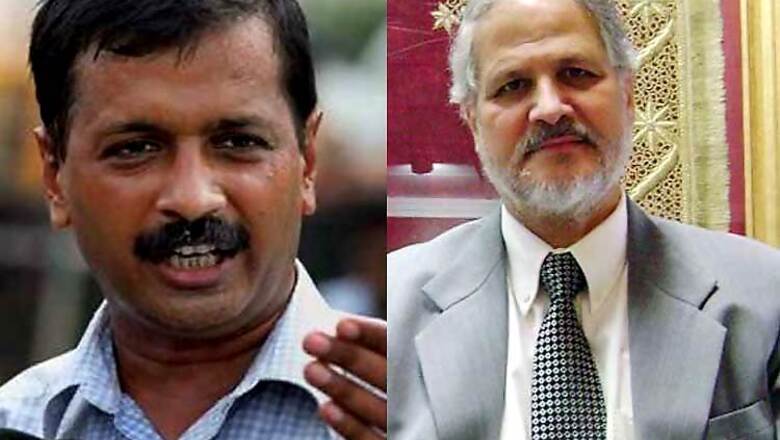
views
New Delhi: The Delhi High Court ruling in favour of the Lieutenant Governor has created a strange situation. The government in Delhi, like that in any other state, is elected by the people.
But, the High Court has interpreted the establishment of Delhi government act in such a way that it has zero independent powers and the government headed by the chief minister is just an intermediary between the people of Delhi and the LG who is a central government appointee.
Without that all decisions, big or small, taken by the state cabinet will be of no use. The situation is so bad that chief minister can't appoint his own personal staff without LG's sanction. The government is left with discretionary powers.
What this means?
Lieutenant Governor Najeeb Jung is the administrative head of Delhi and is not bound to act on the aid and advise of council of ministers even on issues apart from Land, Police and Public order.
While it is mandatory that the Delhi Government communicates all its decisions to the LG, the LG is not bound to consult Delhi Government on any issue except appointing special public prosecutors. Effectively, it means, the elected government and the chief minister has no independent powers.
The May 21st 2015 notification of the Central government that curbed the powers of the Anti Corruption Bureau (ACB) so that it could not act against their officials was upheld as legal and constitutional.
The same notification also made it clear that 'services' fall outside the purview of the Delhi government. The authority over the Anti Corruption Bureau was a big flashpoint.
The AAP government had appointed SS Yadav while Jung appointed M K Meena escalating the tussle further. But HC order makes it clear that Jung appointee heads the ACB.
Effectively, AAP cannot set up any more inquiry commissions. With the powers of Delhi ACB curbed, (and Delhi police out of its ambit) its battle against big ticket corruption is almost a non starter.
The Chief Minister and the Council of ministers do not have any say over appointment and transfer of officials. This has been a thorny issue between AAP and LG. It started with the LG appointing Shakuntala Gamlin as the acting chief secretary for 11 days when the then chief secretary went on leave.
AAP Govt accepted this grudgingly but not without a fight. Effectively, it means the CM of Delhi has no say over who will be his officers, either in the CMO, Vigilance, Law and IT.
So the chief minister of an elected government has no power to appoint or transfer an officer, bring a law in the legislative assembly, issue policy directions to various departments, set up enquiry commissions to investigate big ticket corruption without consulting the LG of Delhi.
After the HC's orders, the powers of the Delhi government have been further curbed.
Earlier there was an ambiguity in the Constitution article 239, 239 AA, The GNCTD Act and Transaction of Business Rules that allowed for divergent interpretations.
AAP has slammed the HC verdict as erroneous. Deputy chief minister Manish Sisodia has said that the government will challenge it in the Supreme Court.
It is indeed the SC which will have the final word.
Apart from the tussle between Jung and Kejriwal, there is the larger question: Where is the 'will of people' represented through the elected government reflected in the HC judgement?




















Comments
0 comment